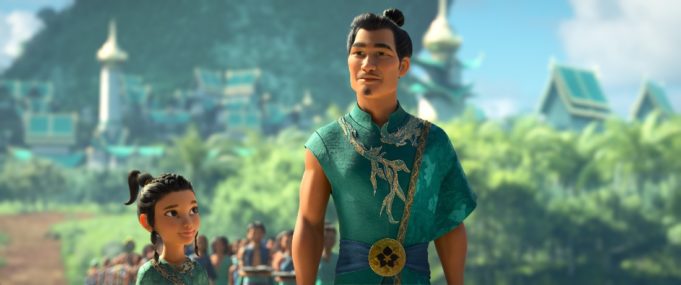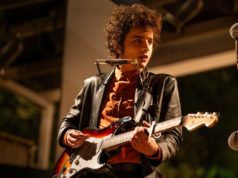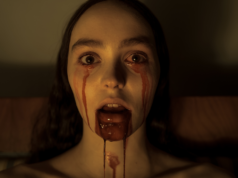I was excited going into the press screening of Raya and the Last Dragon this past week, and not just because it’s only the second one I’ve had in a movie theater in the last 12 months. Disney’s newest animated film is set in Southeast Asia, a region of the world that boasts a rich vein of folklore, which is often ignored in favor of China to the north and India to the west. I have to say that if the film falls short of my expectations, it’s still a unique piece of work that’s easily the best thing to take the kids to if you’re craving a night out at the movies.
The film is set in a mythical land that was once a peaceful, dragon-shaped kingdom called Kumandra, though it is now five separate warring lands named after the different parts of the dragon’s body. The humans fell into war after the dragons sacrificed themselves to defeat an army of monsters called the Druun that turn living beings into stone. The last bit of dragon magic is encased in a gem that’s guarded by a chief named Benja (voiced by Daniel Dae Kim) who believes in reuniting Kumandra. He invites the other countries to a peace summit that goes disastrously, with the gem being broken into parts and a Druun attack petrifying him and many others. Years later, his daughter Raya (voiced by Kelly Marie Tran) is scouring the five kingdoms on a self-appointed one-woman mission to find the last surviving dragon (voiced by Awkwafina), gather together the gem’s pieces, restore peace, and bring her father and all the other stoned people back to life.
Unity is the going theme here, with Benja making Raya a tom yum soup whose ingredients all come from different parts of Kumandra. Whether Raya’s quest succeeds hinges on her teaming up with a rival chief’s daughter (voiced by Gemma Chan) who betrayed her at that summit, and it’s all curiously uninvolving. I find that Disney’s Zootopia made this movie’s point more cogently and with a great deal more wit. Raya herself is somewhat bland — a familiar shortcoming of Disney heroes — and the filmmakers see the need to surround her with no fewer than six cute sidekicks, human and animal. A bevy of Asian actors have been recruited for the voice cast (Sandra Oh, Sung Kang, Ross Butler, François Chau) without being given interesting characters to play. The only one who registers is Benedict Wong as a giant, muscular warrior who isn’t quite as tough as he looks as he assists on the quest.
The movie badly needs Awkwafina when she shows up halfway through as a callow water dragon named Sisu who is the runt of her magical litter. (“You ever have a class project where one kid doesn’t pitch in as much but still gets the same grade as everyone else? Yeah, that’s me.”) Her sense of humor cuts through the film’s reverence and pictorial beauty like a Thai chile through coconut milk as Sisu picks up magical powers along the way, including the ability to change into human form. She can bring a quiet gravitas to the role when it’s needed, too. I don’t think we’ve yet seen all that this comic rapper is capable of doing onscreen.
There’s also no getting around this: No one else has made an animated movie set in this part of the world. Maybe someone will come along later and make one with a sharper story and characters, but until then, Raya and the Last Dragon is the movie for the Thai, Vietnamese, Cambodian, and maybe even Filipino audiences among us to point out to their kids and say, “America sees us.” The fact that the film is more or less watchable (and better than that live-action remake of Mulan from last year) only helps matters.
Raya and the Magic Dragon
Voices by Kelly Marie Tran and Awkwafina. Directed by Don Hall and Carlos López Estrada. Written by Qui Nguyen and Adele Lim. Rated PG.












